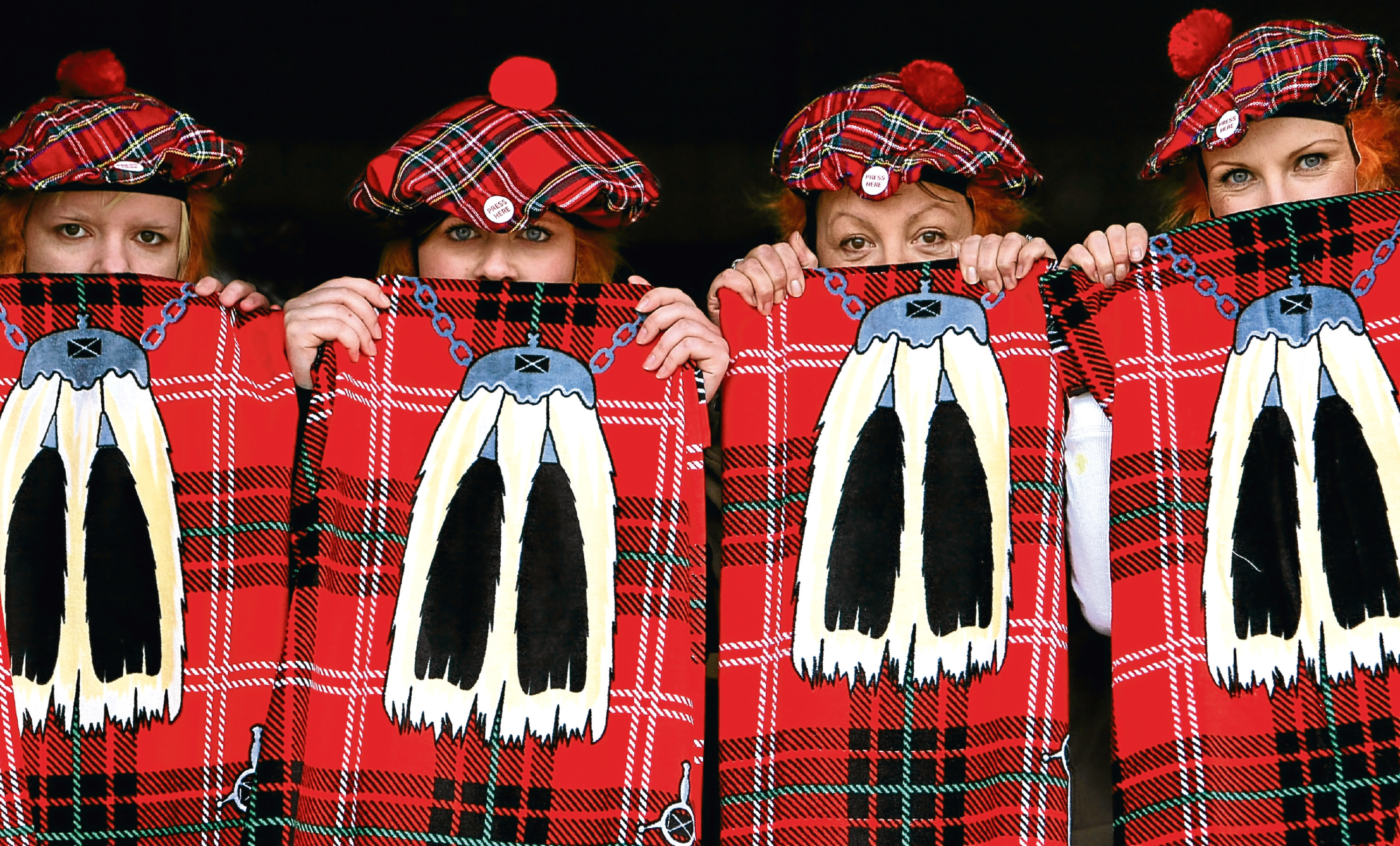
“Oh wull ye stop yer tickling . . .” Oh – should I say the next word?
Ofcom, the UK broadcasting regulator this week published guidance ranking offensive words and terms on a scale from mildly offensive to the strongest.
Incredibly, sitting alongside Nazi and Hun, calling a Scot a Jock was deemed only mildly offensive and of limited concern.
Really?
Excuse me while I pick my jaw up from the floor, but since when did anyone of sane mind think being called a Jock was an insult or even remotely offensive?
It shouldn’t have even been on the list!
Jock is a great name! Famous jocks include JOCK Stein, JOCK Wallace, JOCKey Wilson and JOCK the coalman – and if we believe We’re A’ Jock Tamsons Bairns, then we should be proud to be called one.
Mind you, I think my mum has some explaining to do as his name isn’t on my birth certificate.
Laughably, labelling someone a Taff for being Welsh was regarded as more offensive than Jock.
Thankfully Ginger was still considered a humorous insult although other more inflammatory words were deemed offensive.
You couldn’t make some of this stuff up!
Putting sectarian, bigoted and inflammatory remarks aside, the lines between offence and banter, humour and hate have become so blurred it is thicker than soup.
We now live in a confusing world where Jock is not a joke and Taff is not a laugh.
It’s a politically correct, intolerant and punitive world where the non-PC majority live in fear of being branded a bigot, racist or worse by a minority of single issue steamers if they accidentally let their mouths run ahead of their brains.
The same goes for tweets, as the brilliant comedian John Cleese recently found out.
Calling us “half-educated, tenement Scots that run the English press and crave social status” was either very stupid or very calculated.
Maybe both – but our OTT reaction to it was as predicable as it was depressing.
Instead of laughing at or with Fawlty John’s wheeze, we swallowed the bait hook, line and sinker and became what we insist we are not – intolerant and humourless.
The gnashing of teeth and tirade of defensive abuse that was directed at Cleese almost melted the web.
Instead we should have pointed out that if it wasn’t for a very famous tenement Scot, John Logie Baird, inventing the telly he wouldn’t have become a star in the first place.
There is no doubt about the times – they are a-changing . . . and fast.
And it’s hard to keep up! All shame is in a name!
As as I write this I have just heard that London now has pedestrian crossings that flash up single sex green men and women?
Another unnecessary and confusing signal if ever their was one.
READ MORE
Mobile phone coverage in Scotland lagging behind UK, says Ofcom
Donald MacLeod: Is it just me or is the whole world going back to the future?

Enjoy the convenience of having The Sunday Post delivered as a digital ePaper straight to your smartphone, tablet or computer.
Subscribe for only £5.49 a month and enjoy all the benefits of the printed paper as a digital replica.
Subscribe